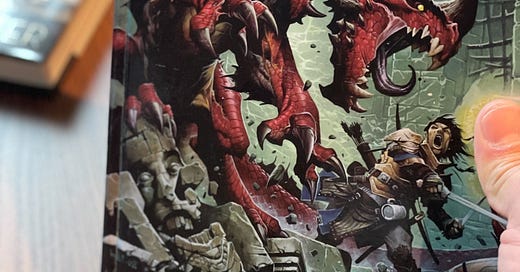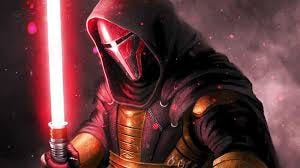You know that feeling you get after you’ve answered a question (poorly) and then remember all the great and insightful things you could have said?
At ComicCon this weekend, an attendee asked me about games and my writing. Specifically, they wondered if any games influenced TSTS at all. I had an answer, but it was vague, like, “Yeah…uhh.. games. I play so many it’s hard to pinpoint.”
The reality is I know the list well. So, sorry for the terrible answer, Comiccon attendee, and here’s the real deal:
Assassins Creed 2
This game was my favorite multi-platform game of a great generation of consoles. I was happily lost in Renaissance Italy—admiring it as a game developer and enjoying it as a player. The character of Ezio was one I liked, and his journey was incredible (to the Pope!)—but the influence was more about my player stories and the limits I put on myself (that the mechanics supported). These included assassin codes of conduct, sects and secrets, poisoning, disguises, and a little violence…
Kahli-type things!
I also used the Assassin’s Creed font when prototyping the book's cover in 2019:
Knights of the Old Republic
This is reaching way back, but “the twist” in Kotor sat with me for a long time. No spoilers for the game or my book, as there isn’t a direct link, but those who've played the game and read the book will know.
Pathfinder
I owe a lot of my career in video games to the house of tabletop role-playing games. In particular, Pathfinder (1.0) was the most influential on writing TSTS.
How so? The last massive campaign I ran before writing the book, with a dream team of players, was “Rise of the Runelords." Nothing from that campaign, save a single word from the title, made it into the book, but GMing it solidified my desire to tell stories as often as possible.
Aside: There is a small section in the book, under the catacombs of Duraktapur, that also looked at the D&D module "Out of the Abyss” for inspiration.
Warframe
I mean… how could it not.
Just yesterday, I sat on a Livestream where we recounted Warframe's 10-year history. In those years, I learned a lot about stories from some of the best in the business and enjoyed sitting in on so many story meetings.
What did I take in particular? Well, that personal stories are more important than anything else. For TSTS the Warframe influence was to make it about the characters rather than the fantasy staples of world-building, magic systems, exotic creatures, and politics. Of course, the book has those things, but because of Warframe, I always ensured that the character's journey was at the forefront.
Some quotes for creative ruts
I have a few go-to quotes, depending on the type of rut.
One type is the barricade we put up when we feel lacking in originality. This can manifest as: "I have nothing new to say" or "I just found out my idea has already been done."
I get it, but in a world that can be stricken by neophilia (the obsession with the new), Andre Gide has you covered:
"Everything that needs to be said has already been said. But since no one was listening, everything must be said again.”
Another one I hear is some riff on: "I'm never going to be good enough" or "It's taking too long."
Trust me; I know this well. TSTS took me five years to write! I remember Leo Tolstoy's quote from War and Peace when I start feeling this rut coming.
"The two most powerful warriors are patience and time."
Fun fact: Raik's quote, written on the back of the physical books, was somewhat inspired by this one.
Quick updates
Toronto ComicCon was terrific. I met a ton of great people and managed to do the old “box of disappearing books” trick ;)
Also, more people have read or listened to TSTS in the last 4 weeks than in any other time since release (yay!). This seems to correlate with my talking about it. So, that's another lesson for creatives: talk about the cool thing you did.
That's it for now,
S.M
TO STEAL THE SUN is available in:








